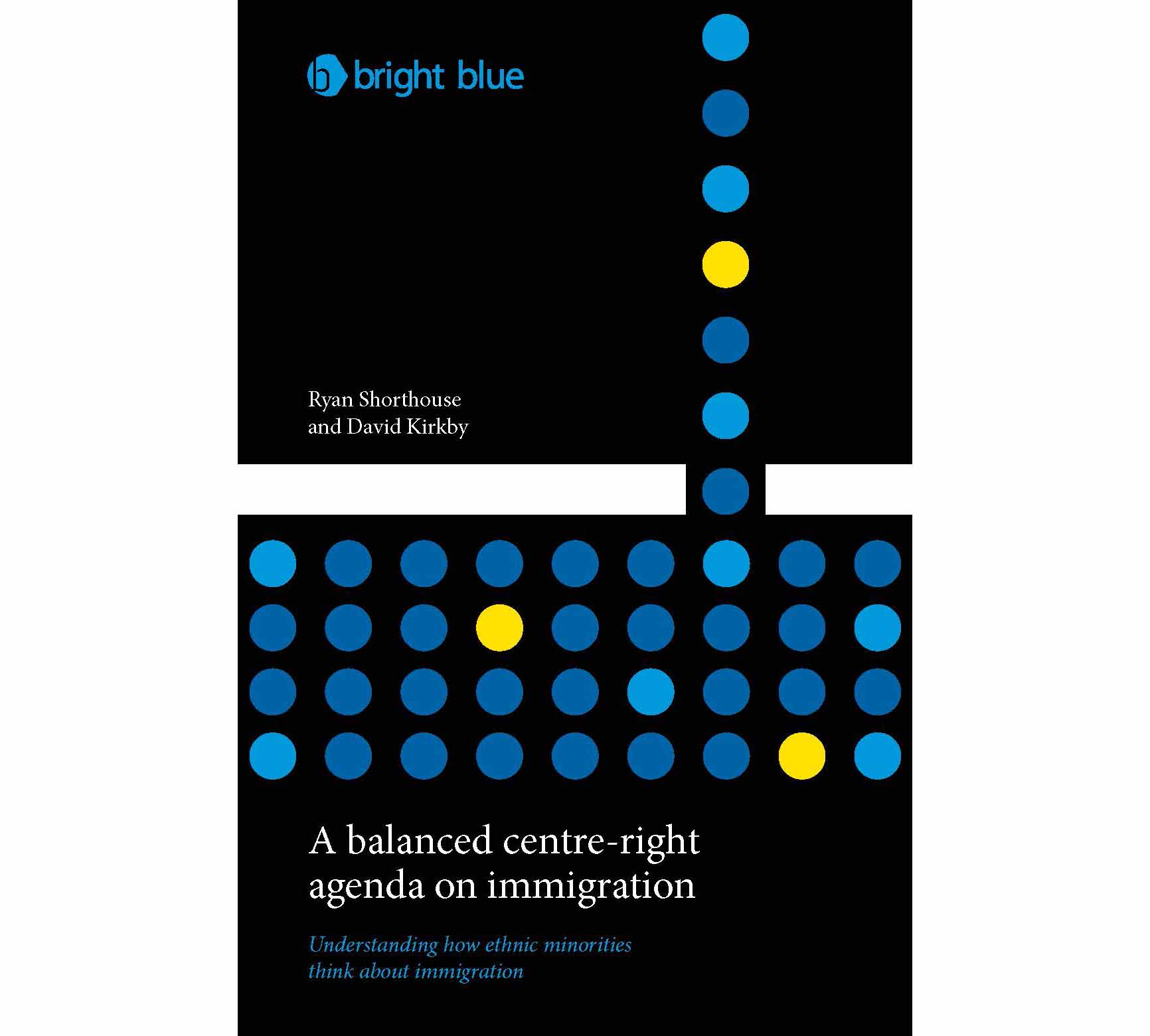Bright Blue, the independent think tank for liberal conservatism, has launched a new report called Understanding how ethnic minorities think about immigration, outlining how ethnic minorities view the purpose of the immigration system, which types of immigrants should be let into the UK, the impact of immigration, and their views on the integration of immigrants. The report has six main findings: Ethnic minorities, like the wider population, are more concerned with having a well-managed immigration system and admitting immigrants who will contribute to the UK than lowering the overall number of immigrants.
Forty per cent of ethnic minorities think that an ideal immigration system is one that is well managed and keeps out illegal immigrants. 25% of ethnic minorities believe an ideal immigration system is one that includes only those who contribute. Only 10% of ethnic minorities think that an ideal immigration system is one with fewer immigrants or no new immigrants (7%).
The most important policy relating to immigration for ethnic minorities, like the wider population, is restricting migrants’ access to benefits
The policy which ethnic minorities would most like to see introduced to improve the immigration system is increasing the time before new immigrants can claim benefits (43%). The second most popular policy is increasing border policing to cut down on illegal immigration (36%). These two policies are more popular than tightening the immigration cap on non-EU migrants (22%) or withdrawing from EU free movement of workers rules (16%).
Ethnic minorities are more welcoming of different types of immigrants than the wider population 93% of ethnic minorities do not want a reduction in the number of international students coming to the UK. 92% do not want to see fewer professional workers coming to the UK and 84% do not want fewer skilled manual workers coming to the UK. Across all types of immigrants, ethnic minorities are more likely to say that their numbers should not be reduced than the wider population.
Ethnic minorities are more positive about the economic and cultural impact of immigration than the wider population Ethnic minorities are also more likely to believe that immigrants are integrating. 73% of ethnic minorities think that most immigrants prefer to be in work than on benefits, compared to 46% of the wider population. 69% think that most immigrants contribute tax, compared to 40% of the wider population. 47% think that most immigrants speak fluent English, compared to 26% of the wider population. 72% of ethnic minorities agree that immigration has provided skills for our economy compared to 42% of the wider population. 65% agree that it has enriched British culture compared to 34% of the wider population. 52% agree that it has helped support our NHS compared to 40% of the wider population.
Immigrants themselves are positive about Britain and participate in local activities An overwhelming majority of immigrants, 93%, are proud (either very proud or somewhat proud) to live in Britain. 87% of immigrants feel respect for the British political system. Moreover, in terms of social mixing, immigrants participate in a range of local activities. 50% of immigrants go to the pub with friends or colleagues and 47% participate in local community organisations.
Ethnic minority views of immigration represent a political opportunity for the centre-right Changing the party’s immigration policy is one of the top changes (24%) which would encourage ethnic minority individuals not currently seriously considering voting for the Conservative Party to consider it, behind only changing NHS policy and changing economic policy. There is an opportunity for the centre-right, and the Conservative Party in particular, to develop a policy agenda on immigration that strengthens its appeal to ethnic minority voters. Rather than a narrow focus on caps and clampdown, the Conservative Party should have a balanced agenda on immigration. This should include the championing of the significant benefits from immigration, as well as practical policies to address the challenges, and ensuring the system prioritises immigrants who contribute and places competent management of the system at the forefront of debate.
This is the final report from a year long project by Bright Blue. Its last report was A manifesto for immigration. This included nearly 30 new policy recommendations such as: abandoning the migration target and replacing it with a target on gross non-EU migration, excluding international students; making all new migrants excluding refugees and students pay a new class of National Insurance for two years to contribute to the funding of public services; enabling the top tier of governance in each major city (e.g. Greater London Authority and the Greater Manchester Combined Authority) to be able to endorse visas for entrepreneurs; and making citizenship attainable in 3 years, rather than 5 years, if a migrant has paid National Insurance consistently for 3 years, has learnt English and has volunteered for at least 100 hours.

